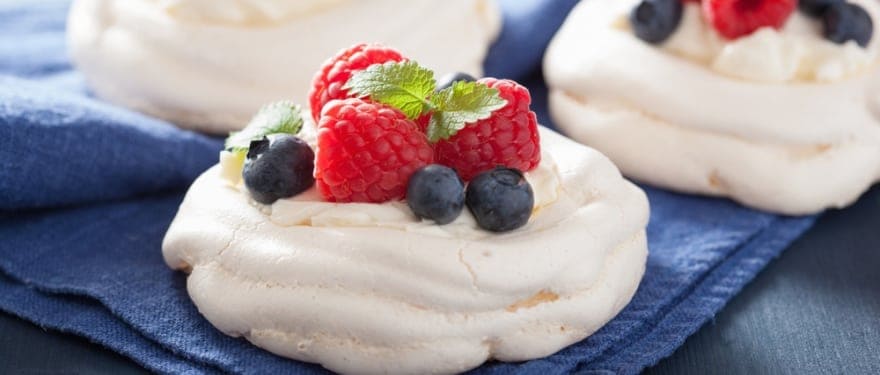The debate has been raging for decades and regardless of the fact that The Oxford English Dictionary’s ruling on which nation the Pavlova belongs to has been made, it is probably still long from over. Both Australia and new Zealand have for years laid claim to the famous (and delicious) dessert, named after a Russian ballerina, the Pavlova.
But the meringue-based dessert topped with fruit and cream is, according to the the OED, the property of New Zealand.
The dessert was named after the Russian ballerina Anna Pavlova, who visited both countries in the 1920s – and this is as much as can be agreed upon by the two nations.
But the OED has put the debate to bed by stating in its relaunched online edition, that the first recorded pavlova recipe appeared in New Zealand in 1927.
the first recorder version of the dessert’s recipe was found in a book called Davis Dainty Dishes, published by the Davis Gelatine company, and it was a multi-coloured jelly dish.
But New Zealanders claim the meringue version also originated there, with recipes for it appearing in publications in 1928 and 1929.
Dr Helen Leach from New Zealand’s University of Otago – a pavlova expert (best job in the world) said, “I can find at least 21 pavlova recipes in New Zealand cookbooks by 1940, which was the year the first Australian ones appeared,” the author of The Pavlova Story told the Daily Telegraph.
The Australian claim is based on a recipe by Bert Sachse, a chef in Perth, Western Australia, but that is believed to date from around 1935.
The OED is the only English dictionary that aims to trace the first known use of every sense of every word in the English language – so chances are they are pretty accurate.
“Linguistically it probably isn’t that important,” the OED’s Fiona Macpherson said about the pavlova ruling. “We have to be neutral about this kind of thing, we’re just interested in where we can get the evidence and what it actually means.”
“It probably does matter, at least if you’re from Australia or New Zealand – it’s nice to think that you might have coined or created something,” Macpherson said to BBC news.
In fact, although the OED credits the first written record of the recipe to New Zealand, it lists the origin, rather ambiguously, as “Austral. and N.Z.”












